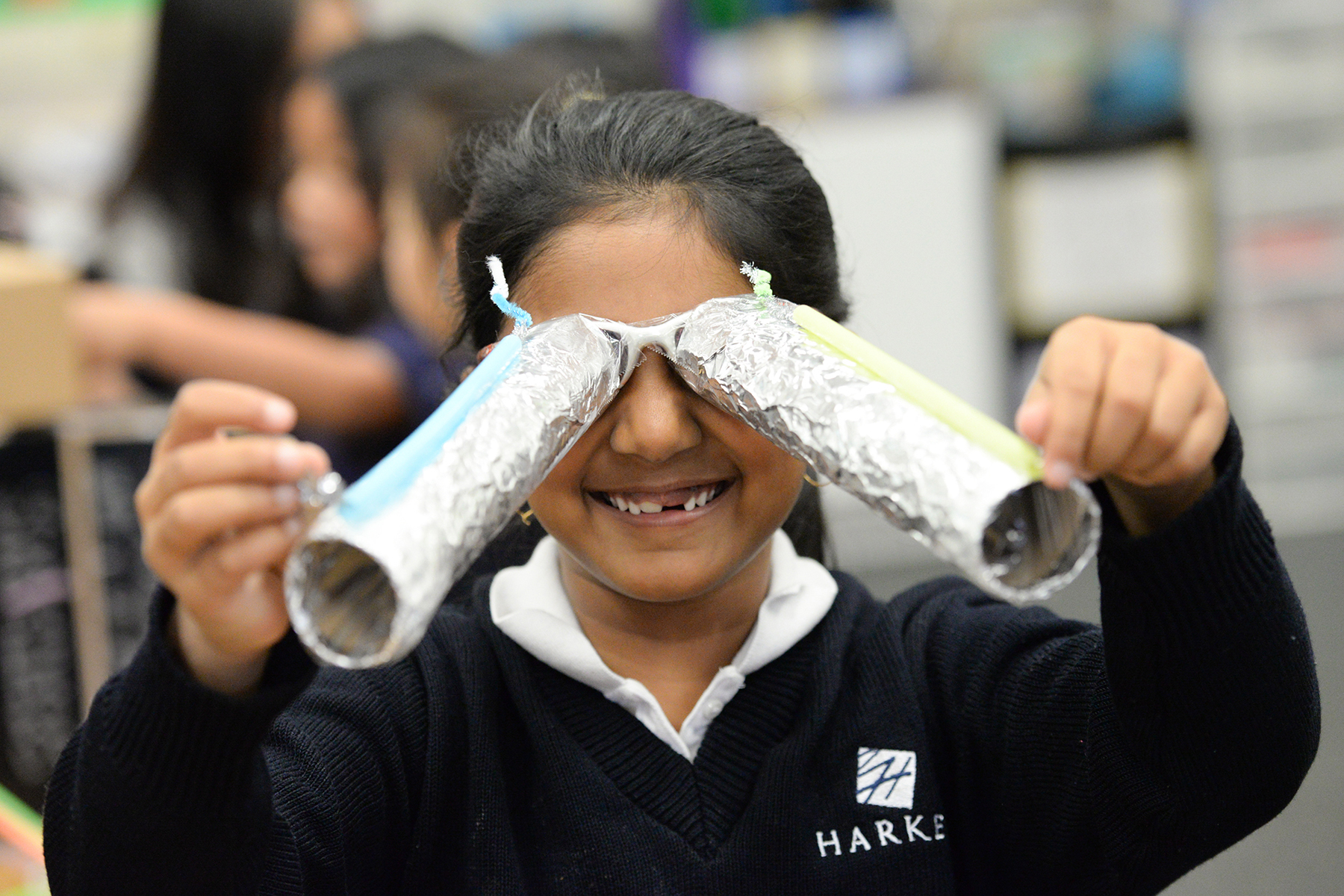Cindy Proctor and Larissa Weaver’s grade 1 language arts students participated in a special project in January that had them conjuring up inventions as a tie-in with their literature readings. The project, first conducted three years ago, involves students using items from an Idea Box to invent something that can be used to make everyday life easier or more enjoyable. Students were required to invent items that could be utilized by lots of people, but they could not be used for time travel or violent purposes.
“We read stories in language arts class that highlight the importance of new ideas, the history of real inventions and books that teach the children about inventors, adult and child, fiction and non-fiction,” said Proctor. “We guide the children to understand that inventing is a process and that mistakes are part of this process.”
Students work on their inventions at home and periodically update their classmates on their progress, including the challenges they’ve faced. Classmates often respond with assistance and encouragement, which teaches the students that invention is often a collaborative endeavor.
The young inventors also learn how to give a presentation on their inventions to their classmates at an Invention Convention, during which grade 2 students who participated the previous year visit the class.
This year, Sam Mazin, who created the technology behind the company RefleXion Medical, made an appearance to speak with the students about the invention process. He also met individually with students to talk about their inventions.
“All the children did an amazing job extending themselves and approaching the task with eagerness, creativity and perseverance,” Proctor said. For example, Augusta Chen devised a machine for students who have trouble remembering to do homework, while Omya Vidyarthi’s “Fly Chair” helps the physically disabled enter and exit their homes. The “Camping Fooder,” invented by Jacob Chung, prepares food for outdoors enthusiasts, while Aarav Mann’s “Rolling Shoes” aim to provide locomotion to those who cannot easily walk.
Over the two-week period from idea to invention to presentation, the students learn important lessons about “ingenuity, perseverance, problem solving and communicating an idea,” Proctor said. “We encourage the children to allow themselves to think, reflect, and make their ideas grow into something tangible. The Invention Convention is a celebration of their thinking process from the abstract to the concrete.”
